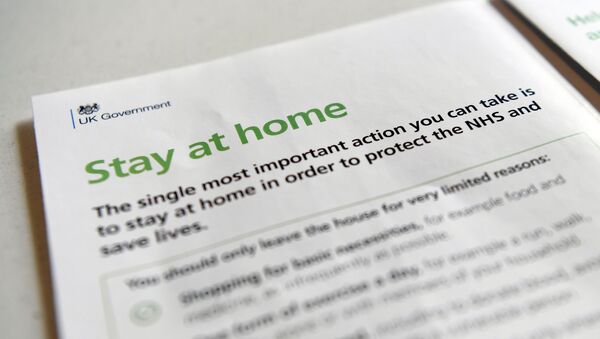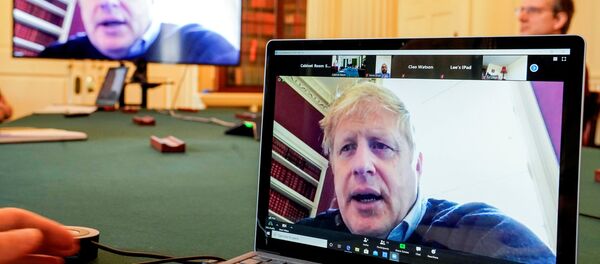Robin Tilbrook, the chairman of the English Democrats, believes that there is no reason to think that the epidemic is going to be as massive as some grim predictions suggest.
Sputnik: The Institute for Health Metrics and Evaluation have predicted 66,000 UK deaths from COVID-19 by August, based on a steep climb in daily deaths early in the outbreak. What do you think of these numbers? Do you agree with these predictions?
Robin Tilbrook: I think we're at the point where we don't really know what the position is going to be, but we're getting a number of different predictions. I think it's significant that the statistician Neil Ferguson from Imperial College London, whom the government had relied upon, went from we're not going to panic about anything to actually panicking about things. He had at that point been saying that we might wind up with a quarter of a million deaths, which funny enough, just happens to be more or less the number that we had die in the Spanish Flu epidemic in 1918 in the UK. But he's now saying that he thinks the deaths will be substantially below 20,000 and that up to two thirds of those deaths would be people who would have died in any case before the end of this year. I'm not sure where this group of statisticians from Seattle have got their figures from, but they seem to be wildly out of kilter with even the most alarmist of what our statisticians were coming up with.
Sputnik: Is this an example of scaremongering and who does it benefit?
Robin Tilbrook: I think it is fear mongering. I don't think there's any basis on any other country's experience for thinking that it's going to be that kind of number. The outbreak does seem to be, in terms of the fatalities, a bit worse than flu epidemics tend to be in the main, but not so wildly worse that it would be that kind of number. A few years back, we had quite a bad go with flu and we had 10,000 die. These numbers need to be put in a in a context and the context is that actually every year in the UK, we have about 600,000 people die, because if you have a population of 70 million, that's the kind the number that you're getting to die every year just from ordinary causes. I don't think we're being given the right sort of background to understand these figures that are being bandied about. It seems to me that there are some entities which would benefit from scaremongering. One of those, of course, is the World Health Organisation, which after all, is finding it’s getting into trouble with the Trump administration for its scaremongering-type of response and the other is the big pharmacy companies and those that are providing medical supplies and services where they're likely to profit from a big epidemic. After all, one of the things that's come out is that the Bill Gates Foundation actually expects to make very huge profits out of vaccines being produced for this.
Sputnik: Analysts were quick to mention that discussions over the government’s herd immunity approach delayed the UK introducing physical distancing measures. Do you think it's right for analysts and these figures in the media to slate the government and make it a political issue?
Robin Tilbrook: I think the government was adopting quite a low-key sensible approach where they were basically saying that we need to provide support facilities for those that actually have a bad reaction to this virus and after all, what we're saying is that that's actually quite a small proportion of the population. One of the things that I think has always got to be mentioned is that we've only got one group of people where there was 100% testing and that was on the Diamond Princess in Yokohama harbour. There were 1,200 people there and of those 1,200 people who were in a confined space with the air circulating within the air conditioning system, 700 caught the coronavirus. That shows us that it's not airborne.
If it was airborne, everybody would have got it through their air conditioning system. The second thing is that out of that 700 who got it, seven died and that was a particularly elderly group. John Ioannidis, a professor at Stanford University, he came up with a statistical analysis of that which suggested the deaths as a result in the general population would be about a quarter of 1%. If it is a quarter of 1%, then that is a death level is equivalent to flu, an annual flu. What we've actually got is already probably a wild overreaction to what actually the threat is. I think it's interesting that this is the third of these diseases in the last decade or so where there seems to have been a bit of a tendency to try and whip up hysteria and you know that this time they've, they've sort of gone full on for whipping up hysteria. There must be some sort of agenda behind that.




